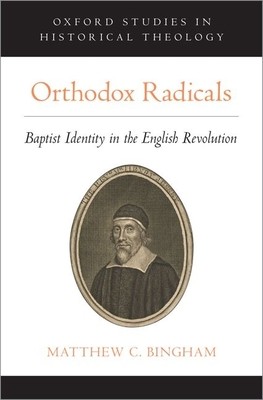
- We will send in 10–14 business days.
- Author: Matthew C Bingham
- Publisher: Oxford University Press, USA
- ISBN-10: 0190912367
- ISBN-13: 9780190912369
- Format: 16.3 x 23.9 x 3.1 cm, kieti viršeliai
- Language: English
- SAVE -10% with code: EXTRA
Reviews
Description
In the seventeenth century, English Baptists existed on the fringe of the nation's collective religious life. Today, Baptists have developed into one of the world's largest Protestant denominations. Despite this impressive transformation, those first English Baptists remain chronically misunderstood. In Orthodox Radicals, Matthew C. Bingham clarifies and analyzes the origins and identity of Baptists during the English Revolution, arguing that mid-seventeenth century Baptists did not, in fact, understand themselves to be a part of a larger, all-encompassing Baptist movement. Contrary to both the explicit statements of many historians and the tacit suggestion embedded in the very use of "Baptist" as an overarching historical category, the early modern men and women who rejected infant baptism would not have initially understood that single theological stance as being in itself constitutive of a new collective identity. Rather, the rejection of infant baptism was but one of a number
of doctrinal revisions then taking place among English puritans eager to further their on-going project of godly reformation.
EXTRA 10 % discount with code: EXTRA
The promotion ends in 21d.20:47:55
The discount code is valid when purchasing from 10 €. Discounts do not stack.
- Author: Matthew C Bingham
- Publisher: Oxford University Press, USA
- ISBN-10: 0190912367
- ISBN-13: 9780190912369
- Format: 16.3 x 23.9 x 3.1 cm, kieti viršeliai
- Language: English English
In the seventeenth century, English Baptists existed on the fringe of the nation's collective religious life. Today, Baptists have developed into one of the world's largest Protestant denominations. Despite this impressive transformation, those first English Baptists remain chronically misunderstood. In Orthodox Radicals, Matthew C. Bingham clarifies and analyzes the origins and identity of Baptists during the English Revolution, arguing that mid-seventeenth century Baptists did not, in fact, understand themselves to be a part of a larger, all-encompassing Baptist movement. Contrary to both the explicit statements of many historians and the tacit suggestion embedded in the very use of "Baptist" as an overarching historical category, the early modern men and women who rejected infant baptism would not have initially understood that single theological stance as being in itself constitutive of a new collective identity. Rather, the rejection of infant baptism was but one of a number
of doctrinal revisions then taking place among English puritans eager to further their on-going project of godly reformation.


Reviews